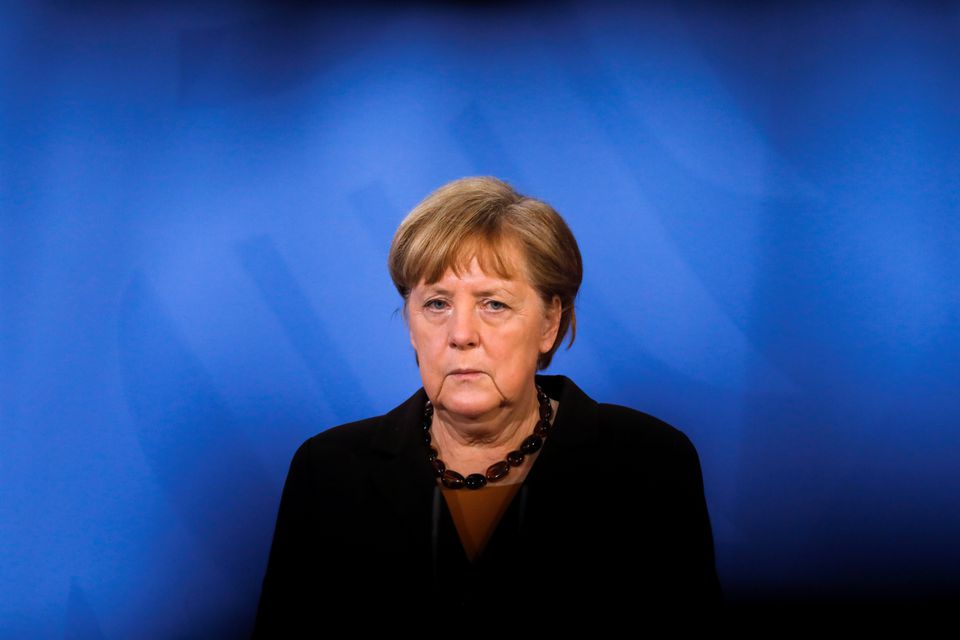The positive decision of Germany’s Chancellor Angela Merkel not to seek another term signals the end of an era. The fractured mandate Germans gave Sunday, 26 September to find her replacement shows an uncertain future and an unpredictable politics that lie in store for the country. The political instability that could grip Germany, as is being predicted by analysts, in the wake of the election results is likely to cast a shadow on the leadership role in Europe that Merkel’s Germany has played during the past decade of her 16-year-long tenure. She proved that under her administration, Germany did become the leading voice of the European Union (EU).
According to official results announced so far, the centre-left Social Democrats (SPD) has secured 25.7 per cent votes against the Christian Democratic Union’s (CDU) 24.1 per cent, the Green Party’s 14.8 per cent, the pro-business Free Democrats’ (FDP) 11.5 per cent and the ultra-right Alternative for Germany’s (AfD) 10.3 per cent. This is the CDU’s worst performance in its history. The Green Party has managed to cash in on the people’s sentiments for better climate change management. Now, it, along with the FDP will together play kingmakers’ role as no government can be formed without their support, unless the SPD and CDU join hands again as they have been ruling the country. However, the alliance between the SPD and CDU is very unlikely as they have indicated before the polls that they want change. The ultra-right AfD created some consternation for its rise in recent times, but this time it has slipped from its previous tally of nearly 13 per cent votes, bringing some relief to those who condemn its rightist ideology. No party in Germany wants to work with it. The right losing popular support and the centre-left gaining ground is also an indication of changes taking place globally.
The election results have caused such uncertainty for government formation that it seems it would take weeks of hard bargaining before it would become clear which coalition would rule the country. One thing that looks certain is that the duopoly of SPD and CDU is going to end and instead a three-party rule is set to be the new order. The uncertainty of the coming weeks will cause difficulties for Europe as a whole as Germany is the biggest democracy of the continent that has taken a lead under Chancellor Merkel in the fight against COVID-19. Germany’s economy is the strongest among European countries.
Merkel leaves behind a legacy of politics of pragmatism and compromise. Her style of functioning was averse to innovations and change. For this she has coined the German expression which is a replica in a different context of the clarion call of former US President Barack Obama – “Yes, We can”. Confronted with the refugee crisis, she deviated from her European allies and opened the country’s doors to refugees with the famous expression – “We can manage”. Managing the situations at hand has been the legacy she is handing over to her successor. So much so that the SPD’s front-runner Olaf Scholz has gone to the voters as her finance minister in the coalition government promising his work would be to go beyond what Merkel has achieved, instead of changing her agenda, though his party is ideologically opposed to hers. This shows the maturity of democratic values of that country. It should never be blaming and undoing of the past that should be the sole agenda of a democratic government. To enlarge and build on the existing policies and programs is the smart way forward. Unfortunately, we do not see such democratic values in a country like India.
The stability provided by Merkel is likely to be under severe strain once the new government is installed. The CDU has ruled Germany for 52 of the 72 post-war years with the help of a smaller party. But this time around, as was clear during the campaign, it would be tough to maintain that tradition. For, Armin Laschet, the candidate of Merkel’s Christian Democrats, who was seen as the front-runner, made a series of blunders that virtually queered the pitch for him and his party. On the other hand, Olaf Scholz cultivated the image of a steady hand which would continue the work done by Merkel. This eventually helped the SPD make a spectacular comeback. The Greens initially showed greater promise, but finally belied the expectations, though its performance is the best ever. The FDP with a share of 11.5 per cent has already announced it would play a key role in government formation. The fractured mandate has created a situation where both the SPD and CDU are vying with each other to seek the support of the Green Party and the FDP. Traditionally the Green Party is a natural partner of the SPD and the FDP closes ranks with the CDU. But both have declared they may change their usual tactic, meaning they may be supporting the party they are normally opposed to. What is even funnier is that the two small parties have indicated they would talk to themselves first before spelling out their options to either of the two big parties.
The result is an unprecedented situation where no one knows who talks with whom on whose invitation and about what. One thing that is clear is that whoever ends up donning the mantle of Chancellor might have to devote more time to keep the allies in good humour than concentrate on ensuring Germany’s leadership in Europe. With France getting ready for next year’s Presidential polls and the UK mired in Brexit chaos, the leadership of European democracies may move south to Draghi of Italy.
